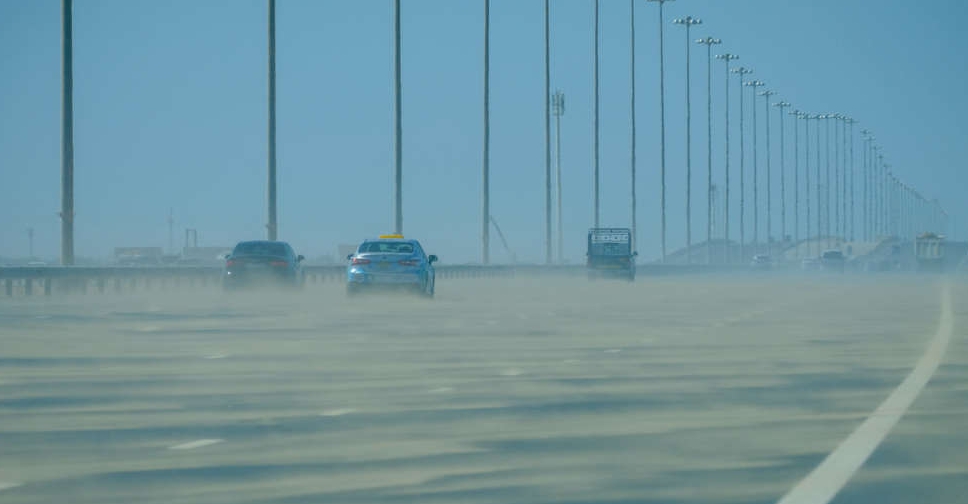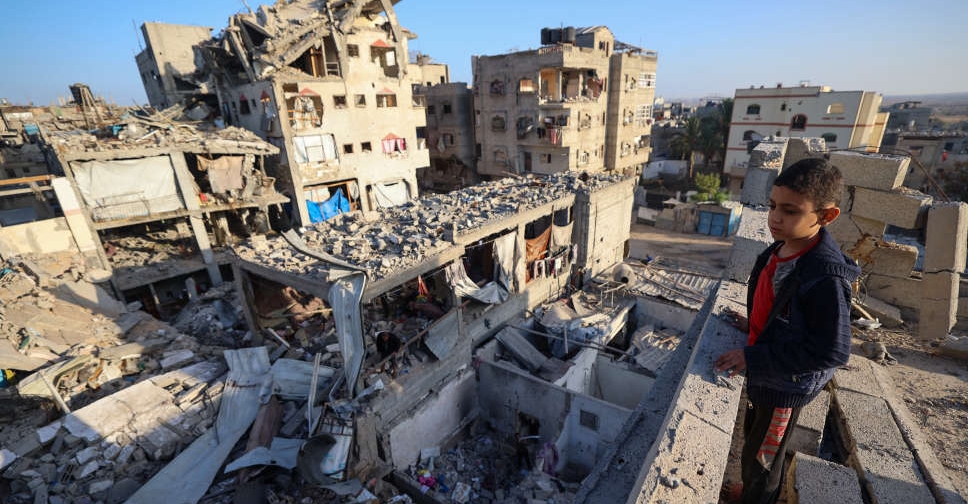
US envoys met Israeli Prime Minister Benjamin Netanyahu on Monday aiming to corral Israel and Hamas to get the Gaza ceasefire plan back on track after an explosion of violence over the weekend that threatened to derail the week-old truce.
Israel and Hamas have both recommitted to the ceasefire plan brokered by US President Donald Trump since Sunday's flare-up in which a Palestinian attack that killed two soldiers prompted an Israeli bombardment killing at least 28 people in Gaza.
However, with even the first stages of the truce shaken by repeated flashes of violence, including on Monday, it was far from clear whether the US will be able to keep pressure on the two sides and maintain momentum to end the conflict.
The latest events reflected the stumbling blocks to keeping the long-sought ceasefire from unravelling and securing a lasting peace after two years of war in Gaza.
Key questions of Hamas disarming, further Israeli troop pullbacks and future governance of the Palestinian enclave remain unresolved.
TALKS ON NEXT PHASE OF CEASEFIRE PLAN
Trump, keeping pressure on both Hamas and Israel as he seeks to salvage the signature foreign policy achievement of the first year of his second term, said on Monday the US was taking many steps to maintain the ceasefire.
He told reporters the "Hamas situation" would be handled quickly but that he had not told Israel to "go in and take care of it." He said that while Hamas was in violation of the agreement, he did not believe its leadership was responsible but that it was facing "some rebellion" in its ranks.
If Hamas leaders do not straighten it out, "we're going to eradicate them if we have to," Trump said at the White House. But he insisted that such actions would not involve US troops on the ground.
During their visit that began on Monday, the US envoys, Steve Witkoff and Trump's son-in-law Jared Kushner, were expected to try to shore up the truce then start talks on the next, more difficult, phase of the 20-step plan.
US Vice President JD Vance was also due to visit Israel on Tuesday, with Netanyahu saying the pair would discuss regional challenges and opportunities.
High-level US diplomacy in the region, with talks also due later on Monday with Hamas in Egypt, underscored the priority Trump has placed on cementing the ceasefire after proclaiming last week the deal heralded "the historic dawn of a new Middle East".
On Monday, Palestinian medics said three more people had been killed by Israeli tank fire near the "yellow line" inside Gaza demarcating Israel's initial military pullback from the main populated areas.
The Israeli military said forces had fired at people who crossed that line, which it was started marking with concrete barriers and yellow poles about every 200 meters.
Gaza City residents reported confusion over the line's location due to the lack of a visible boundary.
"The whole area is in ruins. We saw the maps, but we can't tell where those lines are," said Samir, 50, who lives in Tuffah.
HAMAS TO HAND OVER BODY OF ANOTHER HOSTAGE
Witkoff and Kushner's visit to Israel, aimed at discussions on the next phase of Trump's complex ceasefire plan, was scheduled before Sunday's flare-up in violence, according to US and Israeli sources.
Israel is unlikely to publicise any progress in the talks until the remains of more hostages are returned.
The Red Cross received the body of another hostage from Hamas on Monday and transferred it to the Israeli military, Netanyahu's office said.
Israel believes Hamas could hand over up to five more bodies immediately. Other bodies among 15 still in Gaza may be hard to recover because of destruction in the enclave.
Egypt will host talks in Cairo on Monday with Khalil Al-Hayya, Hamas' exiled Gaza chief, over ways to follow up on implementing the ceasefire, the group said in a statement.
A Palestinian official close to the talks said the group's delegation would discuss formation of a technocratic body to run Gaza without Hamas representation.
Hamas and other allied factions reject any foreign administration of Gaza, as envisaged in the Trump plan, and have so far resisted calls to lay down arms, which may complicate implementation of the deal.
RESIDENTS FEAR MORE OUTBREAKS OF VIOLENCE
Israel said it launched strikes across the enclave in response to a Palestinian attack that killed two soldiers operating inside the agreed deployment line in Rafah in southern Gaza.
Hamas' armed wing said it was unaware of clashes in Rafah and had not been in contact with groups there since March.
Hamas has detailed what it calls a series of violations by Israel that it says killed 46 people and stopped essential supplies from reaching the enclave.
Israeli Defence Minister Israel Katz said any Hamas members in areas of Gaza still under Israeli control must leave immediately and anyone remaining beyond the yellow line would be targeted without warning.



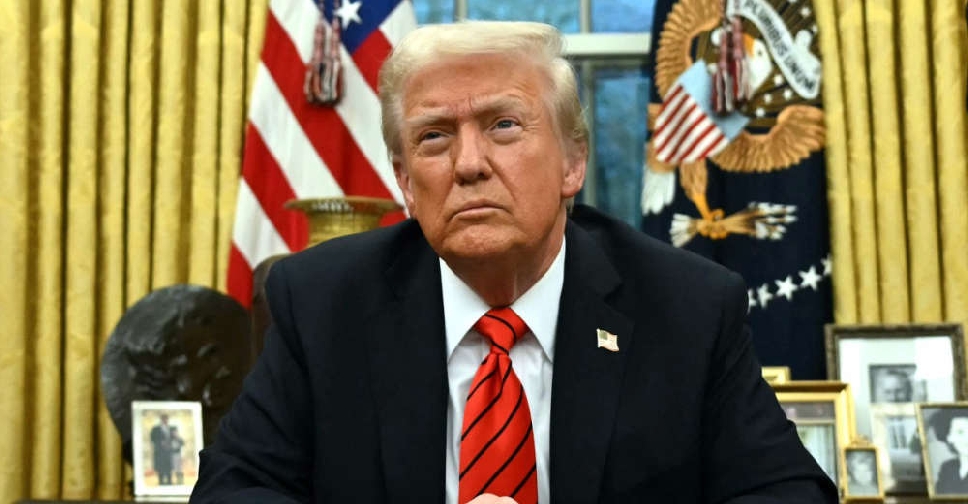 Trump adds seven countries to full travel ban list
Trump adds seven countries to full travel ban list
 Myanmar junta says Suu Kyi 'in good health' after son raises alarm
Myanmar junta says Suu Kyi 'in good health' after son raises alarm
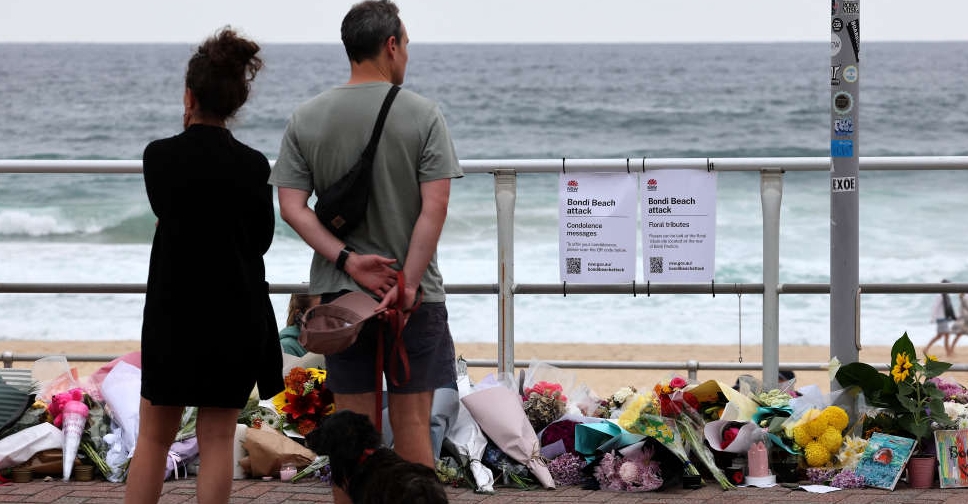 Family of alleged Bondi gunman unaware of 'radical mindset', say Indian police
Family of alleged Bondi gunman unaware of 'radical mindset', say Indian police
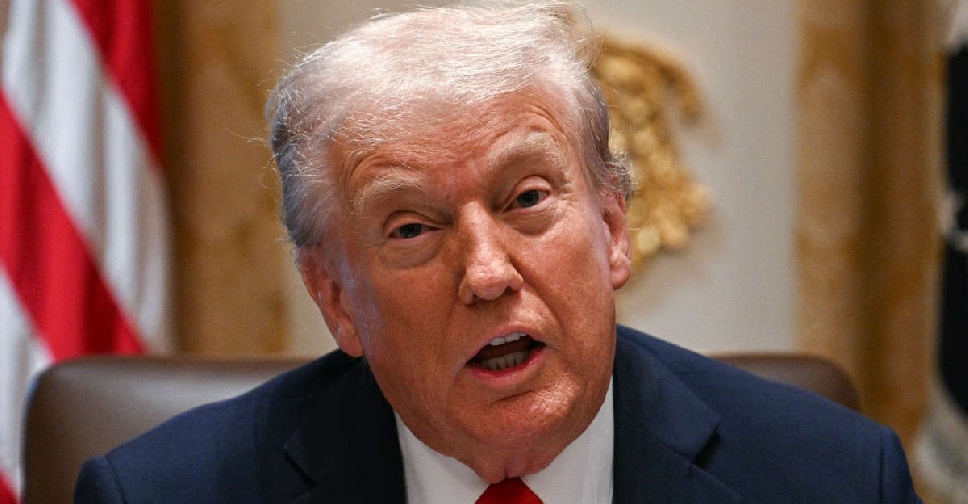 Trump orders 'blockade' of sanctioned oil tankers leaving, entering Venezuela
Trump orders 'blockade' of sanctioned oil tankers leaving, entering Venezuela

